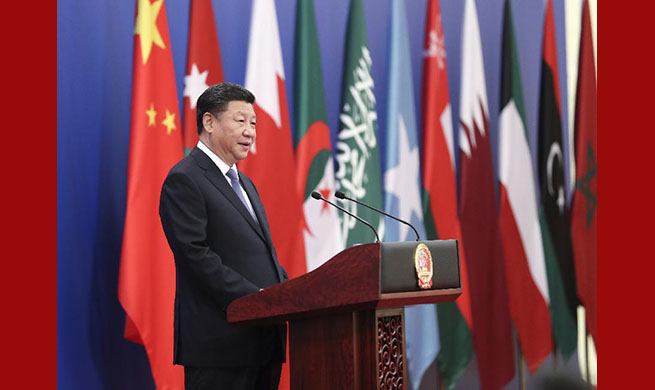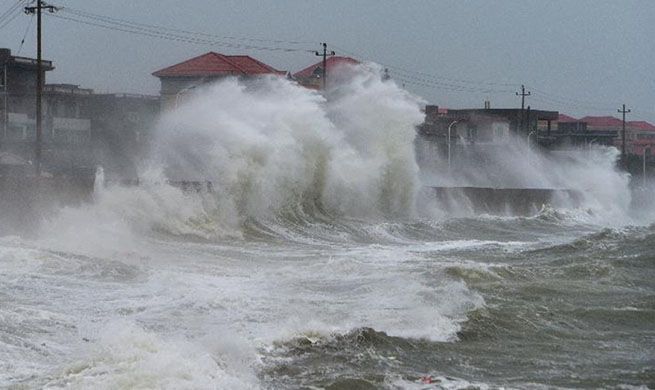BERLIN, July 11 (Xinhua) -- After a five-year trial, the German court determining the fate of Beate Zschaepe, the last surviving member of the infamous "National Socialist Underground" terror cell (NSU), reached its verdict on Wednesday.
Zschaepe was found guilty of aiding and abetting deadly attacks on migrant families as well as a policewoman between 2000 and 2007 and was sentenced to life in prison.
This marks the end of one of the largest, most complex trials in Germany since World War II.
The NSU was a far-right terror cell that consisted of Uwe Mundlos, Uwe Boehnhardt and Beate Zschaepe, and is believed to have formed in 1999. In the following eight years, they planned and executed the murders of eight German citizens from Turkish families, one German citizen with Greek heritage and one German policewoman. They also carried out 15 robberies and were responsible for a pipe bomb attack in Cologne which left 22 injured.
While the Higher Regional Court in Munich has made its final decision, Zschaepe's lawyers may still lodge an appeal and have already announced a revision of the decision. During the sentencing, her co-defendants also received their verdict. Among them, Ralf Wohlleben, who supplied the NSU with weapons, was sentenced to ten years in prison for abetting murder and the others received sentences between two and three years.
The Munich Court asserted a strong severity of guilt in Zschaepe's case. The court concurred with the request made by the prosecutors to convict the 43-year old on ten accounts of murder.
While an earlier team of defenders had pleaded for the acquittal of their client, her counsel recommended a sentence of less than ten years. They reasoned Beate Zschaepe was no accomplice, no murderer and no terrorist. The accused herself had stated that she was only informed about the murders after they happened.
In her final plea before the court, Zschaepe distanced herself from the crimes committed by her now-deceased friends and collaborators. In her statement, she asked the court not to judge her "for something that I did not want and did not do." She claimed to have abandoned any extremist ideology.
The case had caused a national uproar in Germany when the NSU's cover was blown in 2011, as it brought to light willful neglect by the police and subsequent efforts to cover-up the right-wing extremist motive behind the murders. Instead, the victims' families were treated as suspects and interrogated by the police. A board of inquiry was put into place to investigate the glaring oversights and failures by the German authorities.













